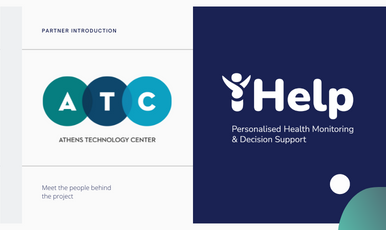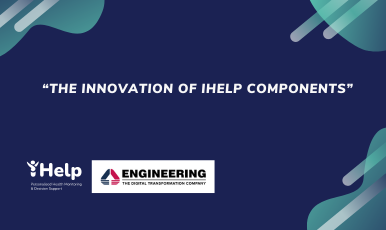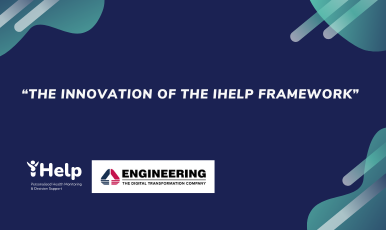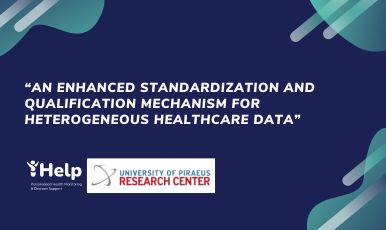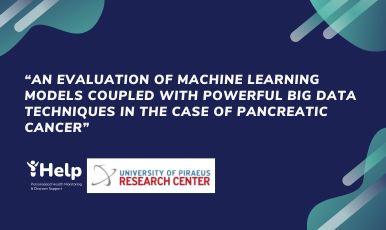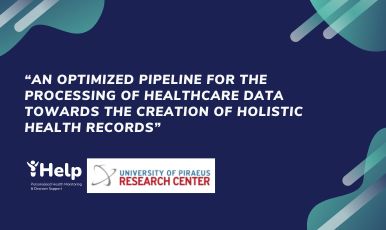Since 1987, Athens Technology Center (ATC) has been planning, developing, implementing, and supporting cutting-edge software solutions for +16 different industries in the EU, the USA, East Asia, and the wider Eastern Mediterranean region, and is also a strategic partner of the European Commission in Research and Development projects. More specifically, ATC acts as a Smart Business Enabler, utilizing the latest technologies to fully meet the contemporary needs of private and public sector organizations worldwide.
Within this spectrum, ATC actively contributes to the development of innovative pre-industrial products and services via its dedicated R&D team (Innovation Lab, iLab). In fact, ATC possesses a successful track record in managing large and complex collaborative research projects, implementing innovative research prototypes, and effectively communicating research results in Europe and beyond. Serving this mission, the Innovation Lab (iLab) contributes both to the strategic policy objective of enabling Europe to master and shape future developments in ICT (through its participation in EU Research Programmes) and at the same time, sustaining the company’s leadership in the field.
 Currently, the unit has +20 running ICT projects, supported by a team of 28 experienced and highly qualified professionals that are working for their successful implementation. The projects’ teams collaborate closely with a variety of academic and research organizations in the international community, representing the company in international R&D consortia, with a focus on domains such as Media & Content Analysis, Digital Government, eHealth, Software & Services and Manufacturing.
Currently, the unit has +20 running ICT projects, supported by a team of 28 experienced and highly qualified professionals that are working for their successful implementation. The projects’ teams collaborate closely with a variety of academic and research organizations in the international community, representing the company in international R&D consortia, with a focus on domains such as Media & Content Analysis, Digital Government, eHealth, Software & Services and Manufacturing.
Furthermore, iLab teams work in close collaboration with other ATC teams, to bring technology and business innovation within the company’s units, as part of the overall ATC’s strategy on Innovation.
Within the framework of the iHelp project, Athens Technology Center (ATC) is a technology provider, bringing its extensive, active experience in exploiting Big Data Analytics to the Health domain. Specifically, some of the relevant use cases that ATC has worked on include:
- developing new prognostic models for the appropriate treatment of head & neck cancer cases.
- collecting & analyzing big, heterogeneous datasets related to hearing loss to support the decision-making & shaping of holistic public health policies for hearing impaired people.
- delivering a decision support system integrating both unstructured & structured data analysis, image & sequence analysis to support, personalized diagnosis & treatments of lung cancer & Alzheimer’s disease.
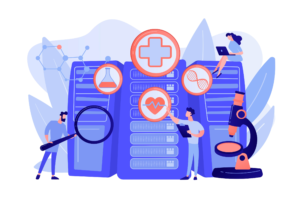
Specifically, in iHelp, ATC will handle the modeling of available clinical data into an HL7 FHIR / HHR structure and the creation of Artificial Intelligence prediction algorithms. In fact, the analysis of a variety of both historic and real-time data for each patient, relevant predictions, and assessments are expected to provide knowledge for different types of risks relevant to pancreatic cancer, as well as their evolution in time.
“The collection, processing, analysis, and visualization of medical-related data, allows the improvement of preventive and therapeutic protocols and leads to enhanced productivity of the health sector overall. Predictive analytics can use historical data in order to alert clinicians and caregivers of the likelihood of events and outcomes before they occur. In iHelp, we will try to predict health issues based on the knowledge of clinical as well as behavioural data “, Anna Triantafyllou, ATC iLab Director
“Healthcare organizations, demand clinical data to be transformed into a common format through standardized terminologies, for facilitating data exchange and processing. In iHelp, we will provide new structures extending current health record ones with information that reflects personalization parameters.” Maritini Kalogerini, Project Manager
“Early identification of patients with a high risk of developing Pancreatic Cancer is of great importance. In iHelp, we will implement ML/AI based predictive models that will take into account a patient’s lifestyle choices to perform risk assessment.” Giorgos Giotis, Senior Developer

